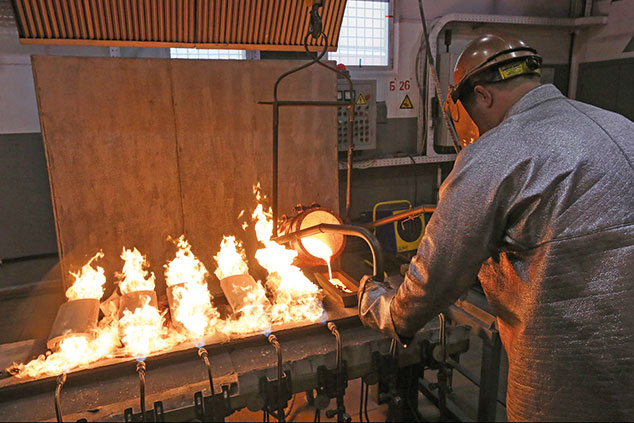
The Bank of Canada has also decided to keep rates steady for the time being. Increasingly doveish central banks have contributed significantly to this year’s stock market rally, says Neinhaus. But is the subdued rate of inflation likely to last?
Looking the wrong way
At first glance, it may seem that way. The Federal Reserve’s underlying inflation gauge slipped below 3% in January for the first time since February 2018, notes David Rosenberg of Gluskin Sheff. Inflation has now been slowing for four straight months and has made a decisive move down from the peak of 3.3% last summer.
A fall in the oil price late last year has subdued the pace of price rises. But as Morgan Stanley points out, oil has recovered in recent months, while last year’s drop will soon fall out of the annual comparison. China is recovering slowly, as Beijing has injected new rounds of stimulus into its economy, so global growth should strengthen.
Most significantly, wage growth continues to strengthen across the major economies. In Germany, wages grew by 3.1% in 2017. That’s the highest rate since 2011, as the Frankfurter Allgemeine Zeitung points out.
In the US, hourly pay rose sharply in February, pushing the wage increase over the past year to a ten-year high of 3.4%. Economists expect wages to keep rising gradually, even if hiring slows from the current rate of nearly 200,000 a month, says Jeffry Bartash on MarketWatch. Wages are growing not just in the US, but also in Europe, Canada and Japan.
In the long run, higher wage growth should force inflation up as pay increases stimulate demand, pushing up prices, in turn leading to more wage increases, and so on. So inflation “might have bottomed out”, says Finanz und Wirtschaft. Investors and central banks counting on inflation easing may be looking the wrong way.
If inflation does rise, interest rates may have to go up in response, and faster than expected if central banks fall behind the curve. That spells bad news for equities but bodes well for gold, which does well when investors get nasty surprises. It is also an excellent store of value, so the return of inflation is another reason to expect it to shine.